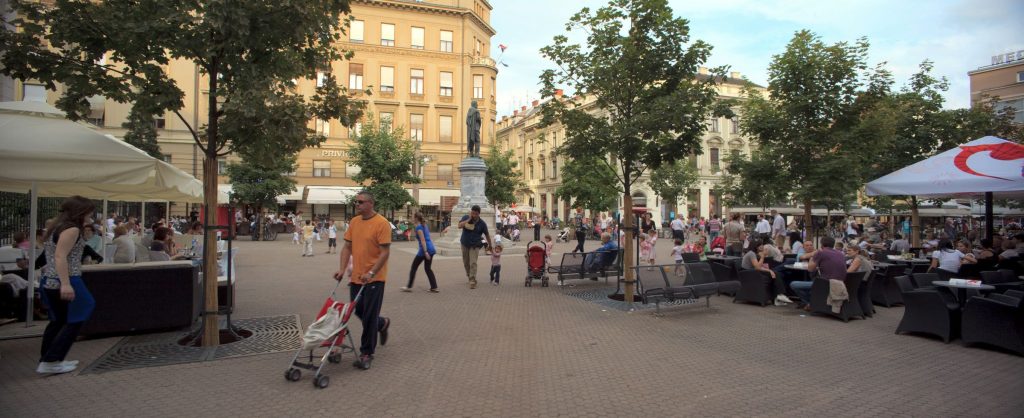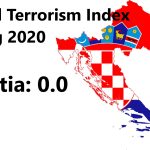ZAGREB, September 21, 2020 – The security situation in Croatia is stable, and in 2019 there were no event or occurrence which could have constituted a threat to the security circumstance in the country, the Security and Intelligence Agency (SOA) has reported.
There are currently no indications of potential destabilisation of the state of security in the country, reads the SOA report which was made public on Sunday.
Terrorism threat level low
Croatia’s current national terrorism threat level continues to be low.
Although the possibility of a terror attack cannot be ruled out, in 2019 there were no indicators of rising threat of terrorism in the country.
The biggest risk concerning this issue are regional followers and sympathisers of Islamist terror organisations and returnees from Syria/Iraq, according to the report.
Seven persons with Croatian citizenship moved into the areas under the control of the Islamic State (ISIL), and two of them were men and five women.
The available data shows that during 2017 and 2018 the two men and a woman died in the Syria/Iraq region and the remaining women of Croat origin are still in civilian camps under the control of Kurdish and Arab forces.
SOA also highlights the fact that not any form of extremism has any strength or potential to topple the democratic constitutional order in Croatia.
The report notes that western Europe is faced with the strengthening of right-wing or anti-immigrant extremism, however, Croatia has not registered any serious anti-immigration extremist movement on its soil.
Islamist radicalism has spread on the southeast of Europe with a marked number of followers, while in Croatia it is marginal with just a dozen people having embraced Salafism, however, they have not shown any inclination to advocate violence.
A risk for the security situation in European societies can be returning “jihadists”, and for instance Croatia’s neighbours in southeast Europe have reported an estimated 1,000 people who are believed to move to Syria/Iraq to join ISIL. Of that number, a quarter (25%) have died in the Middle East, 30% are still there, and 45% have returned to their countries of origin in southeast Europe.
During 2019, 136 people returned from Syria to those countries in southeast Europe, and of them 12 were fighters who fought for ISIL, while the remaining were women and children.
Five APT cyber attacks countered in 2019
The SOA agency reports that during last year, the authorities detected and stopped five Advanced Persistent Threats (APTs) and some of those attacks had been directed against the ministries of foreign affairs and defence.
So far this year, APT has increased in intensity, and APT attacks are using the circumstances marked by the COVID-19 pandemic. In order to response to these challenges, SOA has set up a centre for cyber and information security.
Concerning the fight against narcotics trafficking, SOA recalls that recently the police in the Canary Islands have seized close to a tonne of cocaine worth more than €40 million, in an operation launched by the Croatian police. Croatia’s law enforcement authorities had collected initial information about the transoceanic smuggling of large quantities of cocaine in which Croatian nationals were involved as members of the so-called Balkan cartel.
The operation to break the smuggling ring was carried out in cooperation with the Spanish Civil Guard and French customs authorities. It was also supported by Europol, the Drug Enforcement Administration – Zagreb Office, the UK National Crime Agency, Dutch police, and Bosnia and Herzegovina police.
Security circumstances in Croatia’s southeast neighborhood unstable
The countries in Croatia’s southeast neighborhood are encumbered with a lot of security, political, economic and social challenges.
Religious and ethnic nationalism still constitutes a problem in those countries.
Occurrences linked to Great Serbia extremism are noticed in some countries and they are evident through attempts to deny the territorial integrity and sovereignty of Croatia as well as of Kosovo, Bosnia and Herzegovina and Montenegro, reads the report.
This extremism is manifest in public appearances and speeches as well as rallies of Great Serbia extremist organisations.
Advocates of Great Serbia extremism are trying to stoke up anti-EU and anti-NATO mood in the southeast of Europe, and are promoting their attachment to Russia.
The report reads that radical interpretations of Islam are still present in southeastern European countries. There are enclaves in which some communities are practising radical Islamic doctrines and do not recognise the law and the democratic order of the countries in which they live, which SOA identifies as a security risk.
Emigration deteriorates position of Croats in Bosnia and Herzegovina
Apart from the political situation in which they are trying to reach the full equality with the other two constituent peoples in Bosnia and Herzegovina, the Bosnia and Herzegovina Croats are also facing a trend of economic emigration, and the further downsizining of this community will affect their survival and consequently the multi-ethnic nature of Bosnia and Herzegovina.
When it comes to the topic of irregular migrants, their numbers have been rising on the eastern Mediterranean route. The Frontex statistics show that along this route, which is also called the Balkan route, there were an estimated 82,000 illegal migrants last year, or 46% more than in 2018.
The report underlines that Croatia should strengthen its energy independence and that the LNG terminal would boost the energy security of the country and its neigbours.
The SOA also highlights that white-collar crime and corruption can stifle the economic development of the country.
For the latest travel info, bookmark our main travel info article, which is updated daily.
Read the Croatian Travel Update in your language – now available in 24 languages
Join the Total Croatia Travel INFO Viber community.










